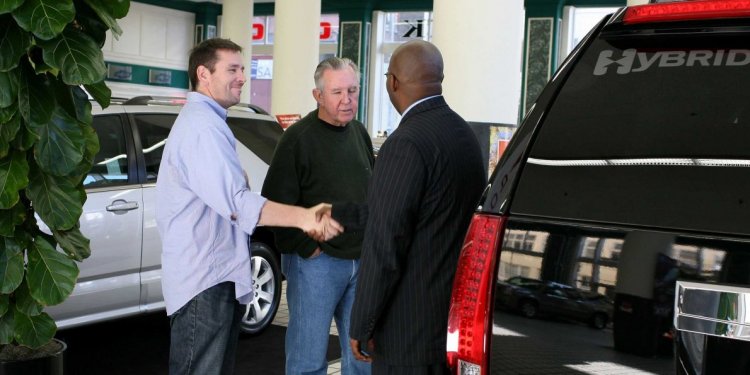
What is automotive industry?
 Steven L. Oberholtzer is handling shareholder regarding the Ann Arbor workplace of Brinks Gilson & Lione, one of several biggest intellectual property law firms in the U.S.
Steven L. Oberholtzer is handling shareholder regarding the Ann Arbor workplace of Brinks Gilson & Lione, one of several biggest intellectual property law firms in the U.S.
DETROIT - there is significant amounts of high-profile collaborations revealed recently between standard automakers, large suppliers and Silicon Valley organizations. This new wave of business activity portends a swiftly switching landscape within the automotive business’s not-too-distant future.
While these collaborations are essential business realities, you should start thinking about and comprehend the special difficulties they pose for conventional automakers and their supplier partners. Without the right administration, these collaborations have the potential to result not just in fundamental structural changes towards traditional automobile industry, but further diminution of the management and clout, favoring rather the tech business.
Right from the start associated with the automotive business until well in to the 1970s, domestic and European automakers had been very vertically incorporated entities which produced completely unique items.
In a next period of business, starting around inside 1980s, domestic makers started an activity of provided element sourcing, co-development and co-manufacturing tasks. For example frequently sourced transmissions between Ford and General Motors and co-manufacturing by Mazda and Ford, and GM and Toyota.
Simultaneously, automakers were just starting to more and more count on their particular Tier 1 companies for standard manufacturing development and production of components and comprehensive vehicle methods. The Tier 1s made significant opportunities within these developments and correctly required the capacity to circulate their products over multiple customers for larger amounts.
While there is a complex party between producers and level 1s regarding exclusivity of functions and items, both groups benefit whenever production amounts increase and cost cost savings are understood. With your collaborations, however, makers struggle to keep unique item choices with distinctiveness generally speaking associated with styling, features, manufacturing quality also aspects.
Despite these difficulties, major automakers have thrived in the recent past along with their Tier 1 partners, due to some extent to sharing the same industry room in a world of large customer need for services and products.
But nevertheless, dramatic changes tend to be afoot within the next period associated with auto business.
Flush with investable bucks and a drive to push into new markets with entrepreneurial zeal, Silicon Valley companies eg Apple and Bing and appearing automobile businesses like Tesla and many various other startup automobile organizations have actually either launched an intention to enter into the automotive manufacturing scene or have actually done so.
Why is this unique of automaker and Tier 1 alliances of history?
The original benefits of current automotive businesses is reduced in light of remarkable brand new technologies and powertrain choices, such as all-electric and hybrid powertrains, assisted-driving technologies and independent vehicles, and a desire for the automobile to become an integral connection platform.
Are car companies tech businesses? On numerous amounts, the clear answer is yes. But considerable expertise and abilities for most among these appearing technologies aren't exclusively concentrated within automotive businesses. Now, faced with hostile action by outsider organizations, automakers and Tier 1 suppliers have collectively decided to come right into broad-scope collaborative tasks with tech companies involving provided technology, market programs and co-development of important, vital technologies.
While we cannot turn back the time clock in this business, these collaborative relationships, or even administered carefully at every amount, can result in a loss of the competitive great things about the traditional automotive industry.
Compared to that point, the legacy automotive organizations must protect control over their existing and organically developed technologies in collaborative tasks, protect the flexibility inside their connections with other prospective collaboration lovers and work out the human being resource and capital spending opportunities had a need to maintain strategic benefits into the areas of manufacturing, supply chain management and item functions and distinctiveness.
The players which handle this procedure most successfully in this exciting new period regarding the automotive business will thrive - those that never may drive themselves to extinction.
Steven L. Oberholtzer is managing shareholder of the Ann Arbor workplace of Brinks Gilson & Lione, the largest intellectual home law offices in U.S. Oberholtzer has actually decades of experience representing clients when you look at the automotive business. A lifelong automobile lover, he worked as an engineer at General Motors and as a senior engineer with a domestic automaker before receiving their legislation level.

















